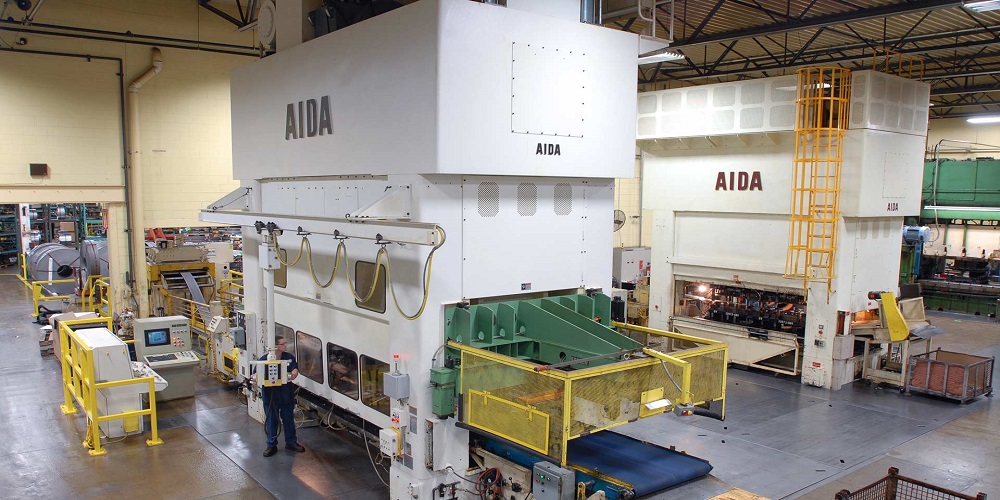Both hydraulic and pneumatic are quite similar to each other in terms of operations, working, and machine components. The fact that a hydraulic press manufacturing company also makes pneumatic press machines is evident that these two aren’t competitors or substitutes.
However, there is a major difference between the two processes as well. That said, there is no clear winner between the two if you are looking for one. Their applications are different. They both specialize in different purposes, and that’s what we are going to discuss in this article.
Hydraulic Vs. Pneumatic Press – Working Principle
When it comes to the working principle, both pneumatic and hydraulic press uses the same principle but with different core material. They both use substance compression to generate mechanical energy that performs the final operations.
The difference is what these two processes use. Where a hydraulic press machine uses some sort of fluid- mostly mineral oil, water, or inflammable & incompressible liquid- a pneumatic press machine uses air or pressurized gas.
Because of this difference in the core material, there can be differences in the results as well. The biggest difference is the pressure these two machines generate. Hydraulic press machines can generate very high pressure from 1000 to 3000 psi. A pneumatic press machine maxes out at 100 psi.
That should tell you all about how these two press machines differ from each other and what their applications are.
Applications Of Pneumatic Vs. Hydraulic Press
The pneumatic press is used mostly in small components because of its lower pressure range. Here’s a list of pneumatic press applications:
- Nail guns
- Dentist drills
- Mechanical tampers
- Air/pressure brakes
- HVAC controls
- Vacuum cleaners and pumps
- Air compressors
- Mining tools
- Gym equipment
On the other hand, the hydraulic press has more power and produces higher pressure; hence it has heavy-duty applications.
- Hydraulic press machines, rams, cylinders
- Turbines
- Braking systems
- Car lift/ forklift
- Elevators
- Construction equipment, including trucks, loaders
- Airplanes
- Bus doors
Advantages Of Hydraulic And Pneumatic Press
Both these press techniques are popular. Let’s take a look at why. Here are some advantages of using a pneumatic or hydraulic press.
Advantages Of Pneumatic Press
- Fast: Pneumatic press is the fastest press process. Because of the air or compressed gas usage, they get the job done quicker than a mechanical or hydraulic press that uses liquid or mechanics.
- Low Maintenance Needs: Pneumatic press requires little maintenance. Because it uses compressed air or gas, the inner components don’t wear too easily. You don’t have to worry about fluid change as with the hydraulic press, and even if any repairs are needed, pneumatic press parts are cheap.
- Safe: Because there is no oil or fluid involved, pneumatic press machines are safer to use than hydraulics that are fire-prone.
Advantages Of Hydraulic Press
- More Power: The biggest advantage of hydraulic presses is that they can generate extraordinary amounts of pressure. Meaning they can treat almost every type of material with ease.
- Versatile: Due to their bigger sizes and higher pressure range, hydraulics presses are much more versatile. A bigger hydraulics press can work in production and assembly, while a smaller hydraulics press can help in manual packing or slight adjustments to the end product.
- Durable: Hydraulic presses are much more durable in comparison to pneumatic or mechanical presses. Even though they generate higher pressure, the machines control the pressure in such a way as to not damage themselves.
Conclusion
Both pneumatic and hydraulic press are becoming more and more common not just in industrial use but also in our day-to-day lives. We hope this article answers all your questions about these two press machines. Feel free to ask any more questions that you might have.
